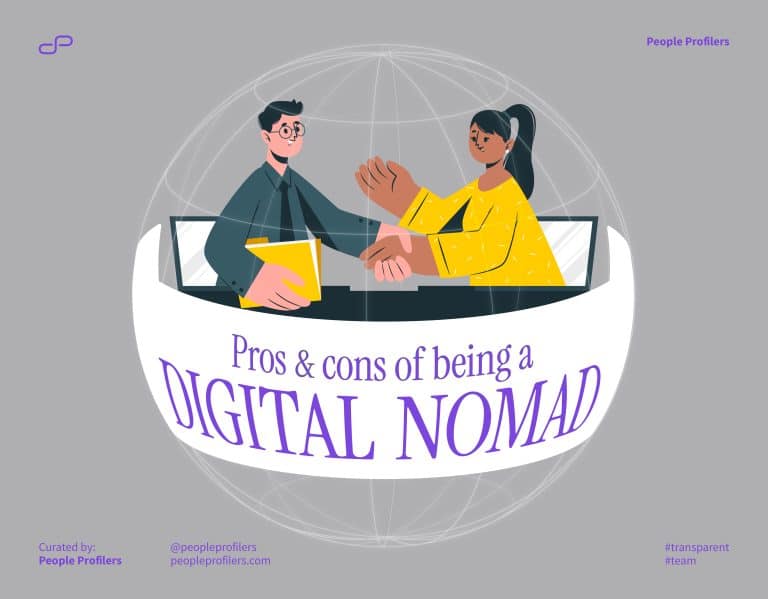
Do you think travelling the world and working on your own terms is only for freelancers? It’s time to think again. According to an article by Forbes, the number of digital nomads has more than tripled since 2019, and many of these digital nomads work in industries like information technology, creative services, sales, marketing, and consulting.
Should you do the same with more people resigning from their traditional jobs and seeking remote work opportunities that offer more work-life balance and flexibility?
Freedom to work whenever and from wherever you want means you can sleep as you please and wake up only when your body is ready to go. After all, your boss is your deadline, and that’s usually quite far away.
As long as you’re somewhere with a stable Internet connection, your workplace options are endless—a cosy cafe, your bedroom, and even transatlantic cruises have Wi-Fi. Furthermore, being able to travel while working a lucrative, full-time job means you don’t just accumulate material wealth you can’t spend; you’ll also gain a wealth of life experiences you wouldn’t get otherwise.
The enormous flexibility of a digital nomad’s lifestyle means you don’t have to take leave for every trip. You can go on long holidays, spend months overseas or take simultaneous trips overseas with your friends—although you must bring your outstanding work.
Unexpectedly, digital nomads save quite a lot of money on typical household expenses. Popular digital nomad destinations are countries where the cost of living is lower, like Thailand, Vietnam, Spain, Mexico, etc. And since digital nomads move so frequently, they do not need to invest in their cars, home appliances or cooking utensils.
However, we should also consider the downsides of being a Digital Nomad.
That said, digital nomadism is scarcely a bed of roses. Working in multiple foreign countries means you must learn each nation’s tax and labour compliance laws and ensure you follow them. Depending on the work you do, information security and good Wi-Fi infrastructure may also be a concern.
With digital nomadism being relatively new, many companies lack the infrastructure to help you navigate these hurdles—even if they can cut you free from working in a fixed office. You will have to scrutinise the restrictions of digital nomad visas and fulfil the tax document requirements.
The stress of learning a new way of life and getting used to a new living environment can become overwhelming very quickly. Liaising with clients or colleagues in different time zones can also be tricky at times, and working weird hours may negatively impact your sleep schedule and social life.
Digital nomads also lack the stability that living in a fixed community offers. Your home is not your home for long; family and friends are far away, and loneliness can take its toll on your mental health. There’s no guarantee that at every new destination, you’ll find accommodation that ticks all your boxes or provides all the comforts you’re used to.
Furthermore, working whenever you like doesn’t mean not working at all. The work still has to get done at some point. Even if you’ve just spent 18 hours climbing a mountain or stayed up all night partying, you still have to deliver if the deadline is tomorrow.
Ironically, many digital nomads burn out due to a lack of work-life balance and end up working too much because frequent travelling affects their productivity. Or they become too enamoured with seeing the sights that their work suffers. Maintaining the perfect balance is difficult, even when given all the freedom in the world.
So, before you quit your regular 9-to-5 office job to pursue the portable life of a digital nomad for the novelty, consider if you’re willing to give it all up for the ability to travel freely and work wherever.


